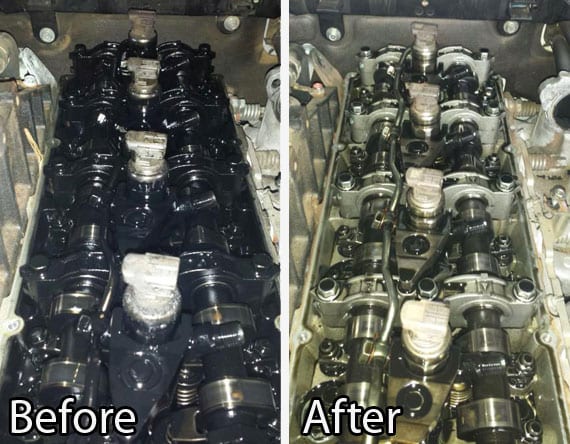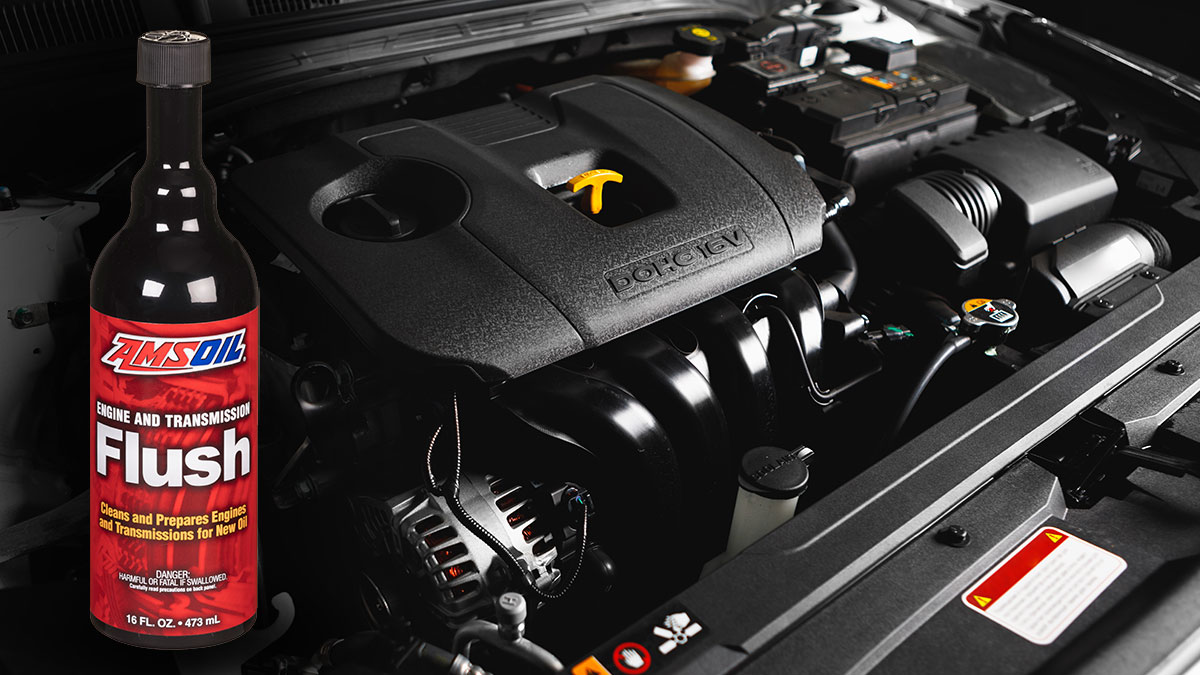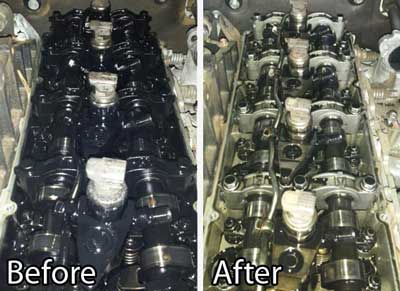An engine oil flush is a process of cleaning the inside of an engine by adding chemical additives to the engine oil to break down sludge and carbon deposits from old oil. This process aims to get rid of impurities in the form of deposits inside the engine and enhance its overall performance.
A clean engine runs more efficiently and contributes to the vehicle’s fuel economy. If you hear strange noises from your engine, see a drop in engine performance, or notice an increase in exhaust fumes, these could be the signs that your engine needs flushing.
However, it is important to note that not all engines require an oil flush, and it is best to consult with a professional mechanic before deciding to perform this procedure.
The Purpose Of Engine Oil Flush
The purpose of engine oil flush is to remove contaminants that may have accumulated inside the engine, enhancing the engine’s performance and contributing to improved fuel economy. During a flush, chemical additives are added to the engine oil to break down sludge or carbon deposits from old oil, followed by the replacement of the old oil and oil filter. Signs that your engine may need a flush include strange engine noises, decreased performance, increased exhaust fumes, or prolonged intervals since the last oil change. An engine flush can be highly beneficial in such cases.

Credit: costeffective.com.au
Comparing Engine Flush And Regular Oil Change
Engine flush involves adding chemicals to the engine oil to break down sludge and deposits, while a regular oil change simply replaces the old oil with fresh oil. Engine flushes are generally recommended when there is a buildup of contaminants, whereas regular oil changes are part of routine maintenance to keep the engine running smoothly.
| Key Differences | Pros and Cons |
| An engine oil flush is a process that aims to clean the engine by removing sludge and deposits. | Pros: Enhanced engine performance and improved fuel economy. |
| A regular oil change involves draining the old oil and replacing it with new, clean oil. | Cons: Potential risks if not performed correctly, such as dislodging debris and causing damage. |
Chemicals Used In The Flushing Process
An engine oil flush is a process that involves adding chemical additives to the engine oil to break down sludge or carbon deposits from old oil. The purpose of an engine flush is to remove impurities and contaminants that may have accumulated inside the engine, enhancing its overall performance.
Common ingredients used in the flushing process include chemical compositions that are added to the engine oil. These compositions work by breaking down the sludge or any other deposits present in the oil. The chemicals target and dissolve the impurities, allowing them to be flushed out when the old oil and oil filter are replaced.
| Common Ingredients | How They Work |
|---|---|
| Chemical compositions | Break down sludge and deposits in the engine oil |

Credit: blog.amsoil.com
Impact On Engine Performance
Engine oil flush is a process that involves adding chemical additives to the engine oil to break down sludge or carbon deposits. This helps remove impurities and contaminants that may have accumulated inside the engine. One of the main benefits of an engine oil flush is enhanced engine performance. By getting rid of these deposits, the engine can operate more efficiently, resulting in improved overall performance. Additionally, a clean engine also contributes to better fuel economy, as it runs more efficiently. However, it is important to note that there are potential risks associated with engine oil flushes, such as dislodging larger chunks of debris that may cause clogs or damage to the engine. Therefore, it is recommended to consult with a professional before deciding to perform an engine oil flush.
Fuel Economy And Engine Flush
An engine oil flush is a process where chemical additives are used to break down sludge and deposits from old oil, enhancing the engine’s performance and fuel economy. If your vehicle shows signs of decreased performance or increased exhaust fumes, an engine flush could be beneficial, especially if the oil hasn’t been changed for a long time.
| Effect on Mileage | Long-Term Benefits |
| A fuel economy is a significant factor in the vehicle’s performance. An engine oil flush removes the contaminants from the engine, resulting in better engine performance, which leads to improved fuel economy. A clean engine runs more efficiently, consumes less fuel and saves money in the long run. | Regular engine oil flushes will prevent the buildup of sludge and other contaminants in the engine. It can extend the engine’s lifespan and save costly repairs. The engine flush also helps to maintain the vehicle’s resale value by keeping the engine clean and running smoothly. |
When To Consider An Engine Flush
An engine oil flush is a process in which chemical additives are used to break down sludge and deposits from old oil, improving engine performance and fuel economy. If you notice strange noises, decreased performance, or increased exhaust fumes, an engine flush may be beneficial.
However, it is important to consider the potential risks and consult with a professional before proceeding.
| Mileage Indicators |
| One of the factors to consider when thinking about an engine flush is the mileage of your vehicle. If your vehicle has been driven for a long time and has accumulated a high mileage, it may be a good idea to consider an engine flush. This is because, over time, the engine oil will accumulate contaminants and debris that can cause damage to the engine. |
| Symptoms and Diagnosis |
| Another factor to consider is the symptoms that your vehicle is experiencing. If you notice strange noises coming from the engine, a decrease in engine performance, or an increase in exhaust fumes, it may be a sign that your engine needs flushing. Additionally, if your vehicle’s oil hasn’t been changed for a long time, an engine flush can be highly beneficial. It is important to have a mechanic diagnose the issue to determine if an engine flush is the appropriate solution. |
Diy Vs. Professional Engine Flush
|
What is an Engine Oil Flush? An engine oil flush is the process of using chemical additives to break down sludge or carbon deposits from old oil inside the engine. It aims to remove impurities and contaminants that may have accumulated, enhancing the overall performance of the engine. A clean engine runs more efficiently, leading to improved fuel economy. |
How To Do It YourselfIf you are considering a DIY engine flush, it’s important to follow the manufacturer’s instructions and use quality chemical additives. Start by warming up the engine, then add the flushing agent to the oil. Let the engine idle for the recommended time, ensuring proper ventilation. Afterward, drain the old oil, replace the oil filter, and refill with fresh oil. Remember to dispose of the old oil and filter responsibly. Alternatively, if you prefer a professional engine flush, it is crucial to find a trusted mechanic. Look for reputable service centers with positive reviews and certifications. Ask for recommendations from friends or family who have had successful experiences. A skilled mechanic will have the expertise to perform a thorough engine flush and ensure the integrity of your vehicle. |

Credit: costeffective.com.au
Maintaining Your Engine Post-flush
After getting an engine oil flush, it is important to follow certain best practices to maintain your engine. One of the key aspects of follow-up care is to regularly check and change the engine oil. This ensures that the engine remains clean and free from any contaminants.
Additionally, it is advisable to use high-quality engine oil that is recommended by the manufacturer. This helps in maintaining optimal engine performance and prolongs the life of the engine.
Another important aspect is to monitor the engine for any unusual noises or drop in performance. If you notice any such signs, it is recommended to consult a professional mechanic who can assess the situation and provide necessary repairs or maintenance.
Furthermore, it is essential to adhere to the recommended maintenance schedule provided by the manufacturer. This includes regular servicing, filter replacements, and overall inspection of the engine.
By following these best practices, you can ensure that your engine remains in good condition and continues to perform efficiently post-flush.
Frequently Asked Questions
Is Engine Oil Flush A Good Idea?
Engine oil flush can be beneficial as it removes contaminants and enhances engine performance and fuel economy. If you notice engine issues or haven’t changed oil for a long time, an engine flush could be helpful. However, it’s important to use it carefully and follow manufacturer recommendations.
Is An Oil Flush A Rip Off?
It depends on the situation. If your engine is experiencing issues due to contaminants, an oil flush can be beneficial. However, if your engine is running smoothly, an oil flush may not be necessary and could be considered a rip off.
It’s important to consult with a trusted mechanic before making a decision.
What Does Engine Flush Do To Your Engine?
Engine flushing is a process that involves adding chemical additives to the engine oil to break down sludge or carbon deposits from old oil. The contaminants are removed, and the old oil and oil filter are replaced. This process enhances the engine’s overall performance and fuel economy.
If you hear strange noises from your engine, see a drop in engine performance, or notice an increase in exhaust fumes, these could be signs that your engine needs flushing. However, it is important to consult a professional before opting for engine flushing.
How Do I Know If I Need An Engine Flush?
If you hear strange engine noises or experience decreased performance and increased exhaust fumes, it may be time for an engine flush. Also, if your vehicle’s oil hasn’t been changed for a long time, an engine flush can be highly beneficial.
Conclusion
An engine oil flush can significantly improve engine performance and fuel economy by removing contaminants and deposits. It is a beneficial maintenance procedure, especially if your vehicle shows signs of decreased performance or if the oil hasn’t been changed for an extended period.
Consider consulting a professional for guidance on whether an engine oil flush is suitable for your vehicle.


